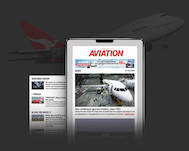
The CEO of air traffic control provider Airservices has admitted his organisation is not delivering the standard of service expected following a row over closed airspace.
However, Jason Harfield insisted “aviation safety performance has been maintained” and pledged to ensure “transparency and accountability for our ongoing performance”.
The statement, released to coincide with its new industry report, was released on a Friday afternoon and significantly didn’t include an apology.
It comes amid a row over whether or not Airservices Australia has enough employees following hundreds of occasions over the last year where it has effectively shut down a significant portion of airspace.
Airservices had previously said it has 100 more air traffic controllers than it requires to operate Australia’s network and said the shutdowns were a result of a “short-term” and “unplanned” leave of controllers.
On Friday, Airservices released a new ‘Australian Aviation Network Overview’, which it describes as an “industry snapshot covering social and economic trends, our regional context and performance of the Australian aviation network for financial year”.
In a cover letter, Harfield said, “Our industry is now experiencing a rapid recovery while still facing significant volatility and the ongoing disruptive effects of the pandemic.
“Traffic patterns and the rate of recovery has not been uniform across the Australian network. Regional airports which service domestic leisure demand, interstate migration and mining regions are experiencing strong growth. In contrast, despite a high rate of recovery, international operations at the busiest capital-city airports are still 30 per cent below pre-pandemic levels.
“In navigating these challenges, regrettably, Airservices has not consistently delivered the service standard we expect of ourselves and relied upon by our customers and stakeholders.
“While aviation safety performance has been maintained, the efficiency and consistency of the network, at times, has been impacted and constrained, hampering the recovery.
“I am committed to ensuring transparency and accountability for our ongoing performance to ensure we can effectively serve our customers day in and day out.”
Harfield continues that his organisation “must work closely with customers and stakeholders” to support aviation’s recovery.
“My intention is to foster a more-informed conversation about how we tackle common challenges and shape the opportunities to improve outcomes for the aviation industry and the travelling public.”
His intervention comes after Qantas said staff shortages at Airservices had a “significant impact” on its reliability, and following air traffic control union Civil Air and the Australian Federation of Air Pilots (AFAP) arguing the organisation has a staffing issue.
Airservices has consistently maintained it has enough staff. The ATC operator previously said it expects around 80 new trainees to become operational in the 2024 financial year, and is recruiting a further 140 for 2025, after which it plans to recruit an extra 80–140 trainees per year.
“Airservices employs more than 900 ATCs, 97 per cent of which are in operational roles. Airservices only requires about 800 ATCs to fully staff the ATC network,” said a spokesperson for Airservices in a statement previously.
“Rosters are tight in some areas as a component of the ATC workforce are currently unavailable for operational duties. These staff are either on long-term sick leave, parental leave, training for other ATC positions, or working on a project.”
The closure of the airspace forces aircraft to self-separate from each other and rely on radio broadcasts rather than centralised information from air traffic controllers.
Switching to TIBA – traffic information broadcasts by aircraft – leads to delays and cancellations, with Virgin’s policy not to operate in TIBA airspace when possible.
Airservices, however, insists its TIBA workaround procedure is both safe and “internationally recognised”.
















